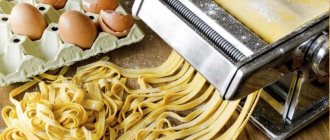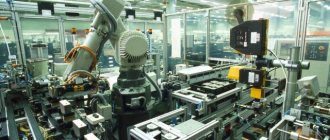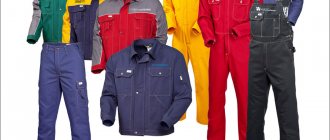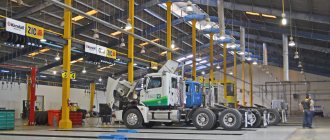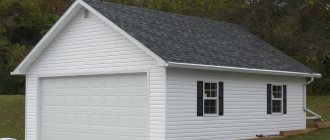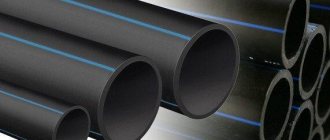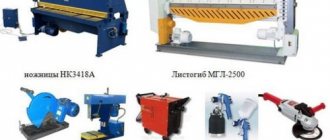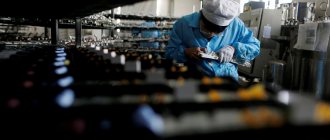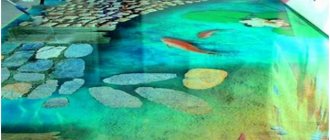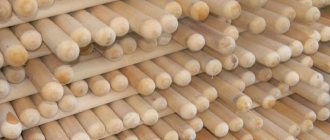Appearing in the mid-1990s, liquid soap quickly became popular among Russians. It is inexpensive and in many ways more convenient to use than bar soap. Now the product occupies about a third of the entire soap-making market in Russia.
The production of this detergent is a promising business idea. Despite high competition in the industry, market demand is not fully covered. In this material we will tell you in more detail about the stages of development of the business, point out its important features and give an approximate calculation of payback.
1. Brief analysis of the industry 2. Liquid soap production: technology 3. What is needed to produce liquid soap? 4. Documents 5. Premises 6. Equipment for soap production 7. Raw materials 8. Personnel 9. Sales 10. Advertising 11. Financial plan: profitability and payback 12. Risks and disadvantages of business
More about business
Opening the production of synthetic detergents (SDC) requires large investments. To implement a business idea, an entrepreneur will need from 5 to 10 million rubles. The main difficulty is the need to maintain a factory, the scale of which is 500 - 800 m2. It will take a long time to create a “own name” that will attract suppliers.
Another difficult point is meeting the requirements of Rospotrebnadzor. The main points include the following:
- production is located in premises that do not allow the accumulation of toxic substances;
- workers are provided with protective clothing and respirators, and also undergo regular medical examinations;
- the workshop is located a kilometer (at least) from residential buildings;
- The workshop requires a powerful forced ventilation system and a set of utility networks.
For failure to comply with one or more points, a businessman faces a large fine, which hurts the budget. It takes a lot of time to obtain certificates. But you can save effort if you contact an intermediary company that provides assistance in obtaining permits.
Reference. An alternative way out of the situation would be to turn to contract manufacturing. Its meaning lies in cooperation with a factory that has all the necessary certificates. A businessman orders certain types of products and picks them up at a negotiated price.
Production technology
The production technology of synthetic detergents includes several stages:
- grinding the components to a homogeneous substance;
- mixing the filler over the ballast with a uniform distribution of active substances;
- drying the concentrate powder to a ready-made state;
- packaging the substance in glass containers, packing the powder in cardboard boxes, wrapping soap in paper or plastic packaging.
In practice, the soap making process involves a large number of details. But they are not the topics of this article, so the production methodology is presented in a simplified form.
The powder is dried in chambers that lift the particles of the substance using currents of warm air. For correct operation of the device, two factors are important:
- air pressure: 50 atmospheres;
- temperature: 250 – 350 degrees.
The disadvantages of this method are increased energy consumption and increased dust. Because of these features, this technology is closely monitored by regulatory organizations. You can obtain a work permit if all manufacturing rules are strictly followed.
Reference. To reduce dust levels, factories use crystallization technology. It involves replacing drying chambers with a low-temperature tower.
Production of washing powders
The production of powdered laundry detergents with a minimum amount of ingredients is one of the simplest types of business in the SMS manufacturing segment from the point of view of organizing. We are talking about powders that include surfactants, fragrance and optical brightener.
Such an enterprise will be approximately 40% more profitable than a workshop for the production of liquid detergents, the cost of which is higher, but the properties are approximately the same. In general, when calculating the profitability of a business, one should proceed not from the diversity of the product range, but from the possibility of producing various SMS on one line. The more categories of products can be produced using existing units, the less funds will be required for the purchase of equipment, rental of premises and other organizational issues.
Depending on the purpose, multi-component powdered laundry detergents are divided into several categories: universal, for hand and machine washing, for combating specific stains, disinfectants, for delicate care, stain removers, bleaches, for children's laundry, for washing in cold and hard water. Soap-based powders stand somewhat apart. They are classified as hypoallergenic products that do not contain aggressive chemicals.
Raw materials for the production of powdered SMS
As mentioned above, the “base” for the production of powdered laundry detergents are surfactants (surfactants), fragrance and optical brightener (chlorine, peroxides). To impart specific qualities, special additives are introduced into the mixtures. It could be:
- soap base;
- sulfates (strengthen the effect of surfactants);
- phosphates (normalize water hardness);
- antisorbents (protect against corrosion);
- fragrances and phthalates;
- sulfates (ballast substances that reduce the cost of products);
- peroxide bleaches and activators (strengthen the cleaning effect in hot water);
- enzymes (promote the breakdown of protein and fatty contaminants);
- anti-resorbents (prevent contaminants from settling back onto the fabric fibers);
- preservatives, solvents, antioxidants (increase the shelf life of goods, prevent clumping and delamination).
This list can be continued, but products with a minimum number of components are in greatest demand. And the safest for humans are soap-based powders.
Having decided on the recipe and necessary ingredients, you need to start looking for a reliable supplier. The information portal www.ruhim.ru/produse_syr.htm will help with this, where a list of more than 100 companies specializing in the supply of various raw materials for the production of SMS is presented. True, few of them have the opportunity to provide everything necessary for a full-cycle plant. On the other hand, there is a plus in this. Narrow specialization is to some extent a guarantee of product quality.
Technology for the production of powdered SMS
The production process includes the following stages:
- Grinding of components . According to the recipe, the raw materials are fed into a colloid mill and ground to a homogeneous consistency.
- Drying the powder . The composition is fed into a drying chamber, where at a temperature of 250-350 ° C and a pressure of 50 atmospheres, the particles rise up and are dried.
- Packing . The powder can be packaged in polymer containers, plastic bags or cardboard boxes.
It is worth noting that this method is outdated, since it requires high energy consumption and a high level of dust. As an alternative, more and more companies are introducing crystallization technology, where low-temperature towers are used instead of drying chambers.
An even more expensive, but also environmentally friendly, technique involves spraying dissolved surfactant anions onto a prepared dry base of fragrance and abrasive.
Necessary equipment
Cleaning, washing and detergents are produced on universal lines. A technological/production line is a set of equipment, the elements of which complement each other and serve the same purpose. The line of equipment for the production of detergents consists of the following devices:
- universal type mixer;
- vacuum chamber;
- homogenizing plant;
- containers for compounds;
- dispensers;
- reactor;
- scales;
- mixers;
- dissolvers;
- pumps;
- drives;
- labeling plant;
- distribution, filling and packaging lines.
The number of production lines depends on the number of containers that the enterprise produces. For example, for a five-liter canister and a liter bottle, two different lines will be needed. The number of containers, in turn, is determined by consumer demand.
Technological equipment manufacturing companies offer a variety of soap making kits. When choosing equipment, you should pay attention to the products it produces. Universal lines cope with the preparation of the following products:
- shampoo;
- conditioner;
- air conditioner;
- shower gel;
- bath foam;
- soap (cosmetic, antibacterial, baby, etc.).
Raw materials
The production of SMS belongs to the chemical industry. Components for the production of detergents are purchased from suppliers of chemical raw materials. In Russia, the group of such suppliers includes:
- 2D-Pharma;
- Abrasive technologies;
- Agrotekhmashstroyservis;
- Akrichimpharm;
- Aroma Union;
- Bang and Bonsomer;
- Binargroup;
- ETS, etc.
Today, more than 160 companies in the Russian Federation are ready to cooperate with start-up entrepreneurs. The quality of raw materials from highly specialized companies is at a consistently high level.
Each company has its own specialization. Some companies are focused on producing fragrances and perfume compositions for soap. Others provide raw materials for household chemicals. There are also general-purpose companies that supply chemical raw materials for SMS in general.
The components that make up synthetic detergents include:
- acids (citric, oxalic, orthophosphoric);
- complexing agents (HEDP, Trilon A92 R, Trilon B (4Na-EDTA);
- soap shavings;
- surfactants/surfactants (anionic, cationic, nonionic, amphoteric, optimized);
- solvents (butyl glycol, butyl diglycol, monopropylene glycol).
Reference. For the convenience of searching for chemical companies, it is recommended to use the resource www.ruhim.ru.
Raw materials
This task, like the selection of equipment, is the main one when organizing production. Incorrectly selected raw materials can lead not only to significant time costs and require almost complete reworking of the technological process, but also to the production of low-quality final products, loss of consumer confidence and, as a result, serious financial losses.
In the standard version, the technological part of the equipment is focused on the raw material base of German manufacturers. Its high quality with a proven technological process allows you to minimize losses from errors that arose at the stage of mastering production and already at the start receive high-quality products.
Room
The premises refers to the territory on which the workshop is located. A production line for synthetic detergents will require an area of at least 50 m2. Two warehouses will be required to store raw materials and prepared products. In addition to the warehouse and work area, the premises should include several rooms:
- rest room for employees;
- first aid station;
- factory buffet;
- sanitary facility (the approach to it is equipped both from the workshop and from the territory).
When arranging the premises, the businessman is guided by sanitary and epidemiological standards. The following rules are taken into account:
- the production of synthetic detergents is located outside residential buildings. Factories are built in the suburbs or even outside the city;
- the presence of powerful hoods prevents the formation of explosive compounds. These devices are necessary to maintain safety within the enterprise;
- installation of catchers and specialized filters that prevent dust from spreading throughout the workshop and neighboring areas;
- covering the walls and floors of the plant with tiles or plastic. These materials prevent the accumulation of harmful substances.
Reference. Compliance with all of the above points does not relieve the workshop owner from carrying out regular cleaning. Systematic wet cleaning is the key to employee health and harmless production.
Product certification
Before starting to sell his goods, the entrepreneur receives a certificate of conformity. The requirements for quality assessment are formed by two authorities - GOST R and TR CU. Obtaining a certificate consists of three stages:
- declaration;
- state registration;
- voluntary certification.
Permits are divided into different categories depending on their validity period:
- TR CU declaration – 5 years for serial production, for a batch – indefinitely;
- GOST declaration – 5 years for mass production, for delivery – indefinitely;
- GOST R certificate – 3 years for permanent production, per batch – for an indefinite period;
- certificate of state registration - for an unlimited period of time for all methods of sale, import and marketing.
Reference. If a businessman starts selling detergents without a certificate, he faces a large fine. Its size reaches 1 million rubles.
The procedure for obtaining permits consists of several sequential steps:
- choosing a registration company;
- sending an application to the certificate issuing center;
- product verification and selection of compliance scheme;
- concluding an agreement with a certification center and negotiating prices for products;
- collection of documentation;
- collecting SMS samples, conducting examinations and drawing up protocols;
- audit, analysis of the condition of the workshop and production line;
- obtaining permission with a unique identification code and sending information to the state register.
Calculation of business profitability
Initial costs for organizing a business for the production of soap and detergents will include renting premises, repair work, purchasing a production line and raw materials for 30 days of work, equipping warehouse space, paying a monthly salary for employees and transport company services. For a plant with an area of 600 m², costs will range from 5-8 million rubles. It should be taken into account that the larger the assortment and the more complex the technological cycle, the wider the staff of the enterprise.
At the same time, it is necessary to remember that consumers are reluctant to switch from well-known brands, even to more affordable and high-quality, but new products. In other words, you can’t expect money to immediately flow like a river. Accordingly, along with other expenses, the entrepreneur needs to provide an amount that, even in the absence of profit, will allow him to pay wages to the entire team for six months without delay.
When concluding any contracts for the supply of equipment or raw materials, it is very important to specify the amounts in local currency, since economic instability can cause financial losses and even bankruptcy of a young enterprise. In general, the household chemicals production business pays off within 4-5 years. Throughout this time and in the future, the entrepreneur will need to make serious efforts to achieve his goal.
Staff
The production of liquid detergents requires employees of different specializations. Staff tasks include the following:
- development of detergent formulas;
- loading raw materials into equipment;
- production line maintenance;
- work on filling machines;
- transportation of raw materials and finished products.
At the initial stage of development of an SMS manufacturing factory, an entrepreneur will need the following set of employees:
- technologist;
- laboratory assistants (3-4 people);
- operators;
- apparatchiks;
- electromechanic;
- forwarding driver.
The advantage of hired personnel to work on lines is that there are no high qualification requirements. The equipment the plant is equipped with operates in automatic or semi-automatic modes. The operators’ tasks include monitoring the correctness of production stages and reporting any errors. Before starting work, employees are given instructions on how to operate the devices.
In addition to those employed in the workshop, other categories of workers will be needed:
- manager and marketer – ensure interaction with partner companies and attract new clients to cooperation;
- accountant – keeps financial records (calculates salaries of employees, deducts tax and insurance contributions to the Federal Tax Service and the Pension Fund, etc.);
- programmer – designs the company’s website (if one is planned) and monitors the correctness of its operation.
Reference. To save money, some workers may be outsourced. Such employees include an accountant or programmer. Their services are not required on an ongoing basis.
Where to locate production
The production line for liquid detergents is quite large. An average-sized enterprise produces about 700 tons of products per year, so the warehouse space must be quite spacious. It is impossible to use the area to accommodate production and administrative personnel together with finished products, so rooms for changing clothes, rest and meals for workers will be needed, separate from the warehouses and production workshop and having a separate ventilation system. As a result, you will need a minimum of 500 sq. m area with a ceiling height of at least 3 meters. The premises are usually located on the ground floor of the building.
Due to the rather strict requirements of supervisory authorities, some entrepreneurs choose the workshops of larger enterprises as the location of production, paying them high rent, which has a direct impact on the final cost of the product.
Types of detergents
According to the all-Russian classification of consumer goods, SMS are divided into subgroups according to the method of application:
- washing items made of cotton, linen, silk and synthetics;
- soaking laundry;
- household needs;
- specialized purpose;
- universal products.
There are alternative grouping methods based on the following criteria:
- state of aggregation;
- compound;
- mode of application.
A comprehensive diagram that takes into account all classifications of synthetic detergents is presented in the image below.
Knowledge of the classification allows the entrepreneur to make a choice of product on which production will specialize. The factory will not be able to produce single high-quality liquid, paste and dry goods. A businessman determines the state of aggregation, notifies a professional technologist of his intentions, and he develops formulas in accordance with the task.
Reference. Each SMS format has its pros and cons. For example, powdered products are made easier than liquid ones. But their production is the most toxic, which affects the technologies used. The production of phosphate-free products makes it possible to increase environmental friendliness.
Soap making technology
Regardless of the type of soap (laundry, cosmetic or liquid), its preparation is based on the same chemical and physical processes.
To bring the semi-finished product to marketable condition you will need:
- mixer;
- mill;
- molds for making soap or molding machine;
- cooler;
- automatic machine for cutting bars;
- belt conveyor.
During the production process, the base for making soap is crushed and melted, all the necessary additives are added to it, after which the soap mass is cooled and cut or molded. To do this, it may be advisable to purchase a ready-made production line: at initially comparable costs, it makes it possible to use automated control, and the time for installing the line is noticeably reduced.
Toilet or baby soap is usually prepared from the base. To make laundry and liquid soap, no additional processing is required, so it is made from primary (fat) raw materials.
The process of making soap from fats includes two stages:
- chemical (actual cooking)
- and physical (subsequent processing, bringing to marketable condition and packaging).
The second stage will require the same set of equipment as when processing the base. Making soap from soap base is less expensive, but the high cost of raw materials can negatively impact overall profitability.
At the first stage, special mixing boilers are additionally required, in which the saponification reaction will occur.
Direct or indirect soap making methods are used . In the first case (direct method), a 40-60% solution of fatty acid salts (soap glue) is prepared from fat and alkali. The resulting mass is poured onto baking sheets and cooled.
The indirect method involves an additional operation of salting out (treating with table salt) the hot soap mass. As a result, two fractions are formed: concentrated soap (sound soap) with a fatty acid concentration of at least 60% and soap lye - the remains of the electrolyte (salt), glycerin, and alkalis that have not reacted.
Using an indirect method, laundry soap with enhanced cleaning properties is obtained. The same method is used to obtain purified soap base, which is subsequently used in the production of solid grade toilet soap and baby soap.
Liquid soap is most often made using the direct method with prolonged cooking of the composition to obtain a uniform emulsion. If you plan to produce liquid soap, no molding equipment will be required; it will be replaced by a bottling line for the finished product.
Full-fledged soap production on an industrial scale pays for itself, according to experts, within 6 months with the correct selection of equipment and organization of the production process.
Advertising and sales of products
Potential distributors for detergent factories include small retail outlets and large retail chains. The versatility of the product opens up many points of sale for the entrepreneur.
One way to find distribution channels is to learn from successful competitors. Effective strategies include the following:
- analysis of channels of SMS production companies;
- analysis of channels of companies specializing in related fields;
- analysis of channels of companies from substitute industries;
- checking competitors' channels with the help of experts.
According to research published by the Business Planner Agency, well-known SMS companies use the following promotion strategies:
- Internet sites:
- own website;
- social networks (Instagram, VKontakte, Facebook);
- contextual and targeted advertising on third-party sites;
- TV ads;
- banner advertising:
- audio advertising;
- distributors.
Reference. Advertising products in several regions requires significant financial costs. It is not advisable to launch a large-scale marketing campaign at the beginning of business promotion. At first, distribution of information about the factory will be carried out by distributors.
Possible problems and risks
At first glance, the business of producing detergent products appears to be a well-oiled machine. But in practice, budding entrepreneurs face a number of difficulties in the development process. The main problems that accompany this direction include:
- high level of competition. Everyone always needs detergents, which is why the soap industry seems attractive to many businessmen. It is important for an entrepreneur not only to establish himself, but also to remain in the first positions;
- reluctance of stores to work with unknown brands. The paradox of business is that buyers do not want to work with nameless companies. But only with the help of buyers can a company gain popularity;
- passing certification. The factory has the right to sell the product after it has passed comprehensive testing. Verification requires documents, collecting which is not an easy task. It is also necessary to remember that voluntary certification is provided for a fee;
- complex technological process. Detergent production has real risks. The consequences of a production failure include explosions and toxic emissions. Therefore, it is important to carefully select personnel.
Every business idea involves the risk of ruin. To avoid this consequence, a businessman thinks through the financial part of the business plan in advance. It outlines the expected expenses and income.
Determining the business format
To decide on the production format, you should soberly assess your own capabilities and the situation in the regional market, as well as identify the assortment. It is important to realize that it is unlikely that it will be possible to create a transnational corporation of the level of Procter & Gamble with representative offices around the world from scratch (although William Procter succeeded). At the initial stage, a lot depends on the starting capital. Thus, to create a full-fledged plant, tens of millions of rubles will be required. A medium-sized workshop will cost about 5-10 million rubles, and to open a small soap factory, you can spend 200 thousand rubles, or even less if the entrepreneur does not count on excess profits.
The second important nuance is the demand for detergents in a particular region. The market is oversaturated with products from large-scale market players that are well known and popular among consumers. The only chance to compete is to provide maximum quality at the lowest price. Even then, it will take time for customers to become familiar with the new product, so don't expect the investment to pay off in the first year. In addition, the market size must be taken into account. Thus, it hardly makes sense to build a detergent production plant in a city with a population of less than 500 thousand people.
Another option for organizing a business is a franchise. But in this case, you will have to play by the rules of a large brand, including in the area of product prices, which is not always beneficial not only to customers, but also to the manufacturer. In return, the entrepreneur receives only the opportunity to work under a well-known brand, assistance in organizational matters and advertising.
Costs and payback
When calculating expenses, two parameters are taken into account - starting capital and monthly investments. An entrepreneur must have start-up capital even before launching a business - this is the financial reserve that accounts for all initial expenses. A list of these expenses is presented in the table.
Table 1. Start-up capital for starting a business producing detergents
| Expense item | Amount (rub.) |
| Registration of individual entrepreneurs/LLC + obtaining certificates of conformity | 30 000 |
| Repair of the rented premises (depending on the original condition of the area) | 50 000 – 300 000 |
| Equipment purchase | 1 500 000 |
| Product packaging design, logo creation and promotional events | 200 000 |
| Development of the company's official website | 80 000 |
| Total | 2 110 000 |
After opening production, the businessman’s attention turns to regular expenses. They include such important items as payment of rent, payment of salaries to staff, etc. Correct calculation of monthly expenses allows you to avoid unexpected expenses and will determine the profitability of the workshop.
Table 2. Monthly costs for the production of cleaning products
| Expense item | Amount (rub.) |
| Rent of workshop premises | 80 000 |
| Payment of salaries to staff | 110 000 |
| Payment for accounting services (on an outsourcing basis) | 15 000 |
| Making tax payments | 13% of total income (6% when switching to a simplified taxation system) |
| Payment of utility services | 20 000 |
| Purchase of raw materials and materials for packaging | 300 000 |
| Logistics and promotional activities | 100 000 |
| Total | 625,000 (excluding tax contributions) |
Reference. In the first months, the business does not bring profit to the owner. This period is called the payback period. The purpose of this period is to cover the costs that were invested in the promotion of production.
The figures given in the tables are approximate. The final cost is influenced by many factors, such as:
- factory location (and rental cost);
- number of employees and salary amounts;
- choosing a specific advertising campaign;
- production volumes;
- equipment quality;
- choice of taxation system, etc.
The profitability of the enterprise is also calculated in general terms. If we assume that the factory sells 40 thousand liters of liquid soap monthly, then we can determine the final income. At a price of 120 rubles for a 5-liter container, earnings equal to 960 thousand rubles. It is important not to confuse income with net profit.
Profit is the figure that remains after deducting all expenses:
- for raw materials;
- for payment of wages;
- for tax contributions, etc.
With an income of 960 thousand rubles, net profit is ~250 thousand rubles. If you maintain a stable level of income, the enterprise will pay for itself in the next 5-6 months.
Best Selling Products
Based on consistency, detergents are divided into four categories:
- hard;
- liquid;
- powder (granulated);
- pasty.
The generally accepted market leaders are products in powder format. The popularity of products of this type is explained by several factors:
- high concentration of active substances in the formula (= economical consumption);
- low cost of raw materials, which results in a favorable price for the product for the buyer;
- ease of starting production and mastering the principles of equipment operation.
Second place on the list is occupied by liquid products. The success of these products on the market is ensured by their hypoallergenicity. The formula of liquid detergents does not include aggressive components that have a harmful effect on the skin. A bonus to safety is the low price of products in this format.
In 2020, there is an increase in demand for specialized detergents for sinks and production equipment. Focused antibacterial products are purchased by food, pharmaceutical and cosmetics companies. Detergents for food production are a separate large industry in which companies specialize.
When forming an assortment of goods, the entrepreneur takes into account the following points:
- availability of raw materials and energy resources (+ costs);
- ecological principles and standards for environmental protection;
- changes in the structure of washing devices.
Answers to frequently asked questions
What documents are needed to open a soap production business?
The first document that is required from a businessman is a business registration certificate. The OKVED code assigned to enterprises producing detergents is 24.51.3. For the legal sale of goods there must be a declaration of conformity with TR CU 009/2011. The document is issued by an Accredited Certification Body. In order for the workshop to operate legally, the conclusions of the Fire Inspectorate and the Sanitary and Epidemiological Station will be needed.
Which method of producing SMS will be cheaper?
The cheapest and simplest methods for producing detergents are cold and hot technology. Savings are achieved due to low hardware requirements. Hot technology is simple - it involves heating and saponification of fats with alkalis, and then cooling. Both of these methods are successfully used by modern factories.
How to choose high-quality and inexpensive equipment for the workshop?
When purchasing equipment, an entrepreneur pays attention to four parameters:
- performance indicators;
- equipment;
- auxiliary equipment;
- manufacturer country.
Foreign companies producing production lines are superior in quality to domestic ones. But domestic ones have a more reasonable price. The price can be reduced even further if you purchase used mechanisms. It is recommended to make such transactions for those businessmen who know their way around equipment. Otherwise, there is a risk of purchasing used devices in faulty or semi-functional condition.
Production of liquid soap + Video
It is unlikely that a novice entrepreneur will be able to obtain the exact recipe for liquid soap, since due to high competition, manufacturers are not inclined to expand on this matter. You will have to develop the specifications yourself. In general, one of the following technologies can be used to manufacture products:
- Hot . The prepared fats are heated, saponified with alkali, cooled and poured into bottles.
- Remelting . To do this, you will need core soap, which is melted on equipment that operates on the “water bath” principle. Then water, antioxidants, dyes and other additives are added to the mass. The technique is expensive, so it is not used often.
- Cold . The simplest and most inexpensive method. The finished components are mixed in a tank and supplied to the dispenser.
To equip a line for the production of liquid soap, you will need dosing devices, filters, a mixing unit, a tank for heating the mass, pumping equipment, and automatic machines for pouring and gluing labels. The cost of such a kit will be from 800 thousand rubles.
